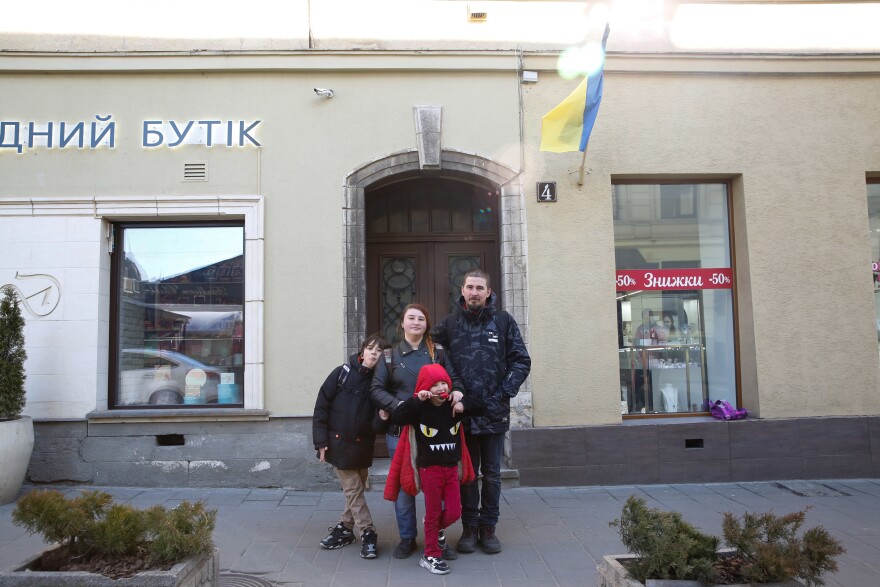Updated March 30, 2022 at 10:32 AM ET
LVIV, Ukraine — The main park in the middle of Chernihiv, north of the Ukrainian capital Kyiv, was supposed to be safe — or so Olha Lysenko had hoped, after spending weeks in a bomb shelter as her city came under siege by Russian forces.
But when she decided to go and check the park for herself earlier this month, she was horrified to find shrapnel everywhere. There were puddles of blood all around.
"I've never seen so much blood in my life," she says. "The city cannot be restored. It has turned to rubble."
Most of Chernihiv lies in ruins, Mayor Vladyslav Atroshenko told reporters on Saturday. In this city of historic 11th and 12th century churches, whose population before the war was 300,000, infrastructure is destroyed: no power, no gas. Water is scarce and food is running low. Russian forces bombed the main escape route out of the city, south to Kyiv, trapping residents and preventing humanitarian aid from getting in.
"Our city is being wiped off the map," Atroshenko said. "It is easier to count the remaining houses that survived attacks."

The family made a lucky escape before a key bridge was destroyed
The Lysenkos don't know if their house survived the shelling; on March 21, Olha, her husband Ihor and their two kids, Yegor and Varya, managed to make it out of Chernihiv, before the bridge leading to Kyiv was destroyed. They are now among an estimated 6.5 million Ukrainians internally displaced by the war.
They joined a caravan of cars, the family and two other adults squeezed into a small sedan. A trip that normally takes a couple of hours from Chernihiv to Kyiv took more than eight on damaged roads. The fields on either side of the roads were shelled, says Ihor Lysenko. "We were lucky to escape."

Their children had a hard time in the car. They didn't eat. They didn't sleep. The loud explosions damaged 6-year-old Varya's hearing. But they had their pets to keep them company: a cat, a dog and two hamsters.
After nearly 18 hours of driving, the family finally made it on March 23 to the western city of Lviv, a refuge for those fleeing harder-hit areas in the east.
The family is trying to make plans while facing an uncertain future
They're staying in a distant relative's apartment, where Varya and her older brother Yegor play together, singing and yelling, while their parents make plans. Varya, holding a half-devoured lollipop, says her pets "were not afraid of anything!" Even the hamsters were brave.
Their mom says usually her kids are happy, full of energy, as they are right now. But she and her husband are not sure what the legacy of the war will be for Varya and Yegor.
On their way to say goodbye to their grandparents, who have stayed in Chernihiv, they encountered shelling and had to run for cover.
"They went into survival mode," their mom says. "They didn't get annoyed. They didn't complain."

Since the Russian invasion, she and Ihor have noticed small changes in their kids' behavior — for instance, when they play now, they play war games. When she asks what they are doing, the children explain they are training to fight back or pretending their toys have lost family members.
Next the family plans to travel to Chervonohrad, a small city north of Lviv, where there are fewer people. They'd like to get back to work, Olha as a psychologist, and Ihor for an IT company.
But they don't know how this experience of trauma will affect them. It's all still shocking, they say. Ihor Lysenko holds up his phone to show a photo of a spot on the ground in Chernihiv where shelling hit. He'd been in that exact spot just a minute before, he says.
Olha shakes her head. It's all still so fresh. But she knows she must move forward.
"I have to put myself in order," she says, "and heal my own traumas."
Copyright 2023 NPR. To see more, visit https://www.npr.org.




